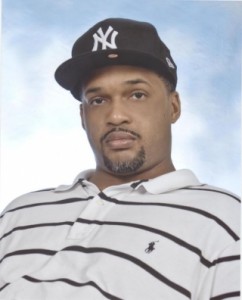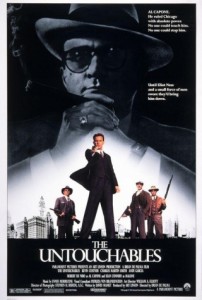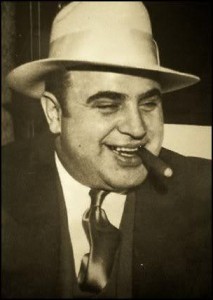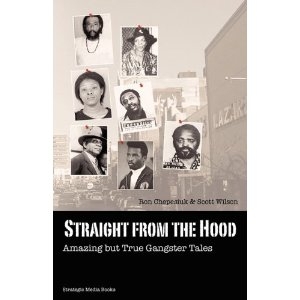 The world of gangster writers is a small one. You got the originals like Tiffany Chiles, Antoine Clark, Cavario H., Kevin Chiles, Shabazz, Ethan Brown, Seth Ferranti and Ron Chepesiuk. But now you have the newer ones who are breaking on the scene as we combine our journalistic and literary might to push this urban outlaw genre into the limelight. The magazines like Don Diva and F.E.D.S. have been doing it since day one. The documentaries like Street Stars, BET’s American Gangster and The History Channels Gangland series jumped on the bandwagon. And Hollywood blockbusters like American Gangster with Denzel Washington have shown this genre can generate serious paper but still no one has gotten a book deal from being in Don Diva, As Is or F.E.D.S. New Jack Gangster writers like Scott Wilson are here to change that. With his blog at www.scottsmindfield.com, his writing gigs at www.planetill.com and Don Diva Magazine and his new book Straight from the Hood: Amazing but True Gangster Tales, Scott Wilson is on a mission. We got the exclusive interview with this new and talented writer. Here it goes.
The world of gangster writers is a small one. You got the originals like Tiffany Chiles, Antoine Clark, Cavario H., Kevin Chiles, Shabazz, Ethan Brown, Seth Ferranti and Ron Chepesiuk. But now you have the newer ones who are breaking on the scene as we combine our journalistic and literary might to push this urban outlaw genre into the limelight. The magazines like Don Diva and F.E.D.S. have been doing it since day one. The documentaries like Street Stars, BET’s American Gangster and The History Channels Gangland series jumped on the bandwagon. And Hollywood blockbusters like American Gangster with Denzel Washington have shown this genre can generate serious paper but still no one has gotten a book deal from being in Don Diva, As Is or F.E.D.S. New Jack Gangster writers like Scott Wilson are here to change that. With his blog at www.scottsmindfield.com, his writing gigs at www.planetill.com and Don Diva Magazine and his new book Straight from the Hood: Amazing but True Gangster Tales, Scott Wilson is on a mission. We got the exclusive interview with this new and talented writer. Here it goes.
What is the title of your new book and what is it about?
The title of the book is Straight from the Hood: Amazing but True Gangster Tales. I coauthored it with Ron Chepesiuk. The title is pretty self-explanatory. The book contains many different stories that emanate from the world of urban gangsters. Some of them are fairly well known, others not so much. All of them are interesting and will keep readers engaged. I’m sure lots of people will be shocked and amazed. Some will even be amused. Ron and I tried to keep the stories varied and interesting. Some deal with worlds of Hip-Hop and Hollywood. Others deal with the criminal underworld exclusively. I think that readers will have a lot of fun with it.
For example, we have a story about how Denzel Washington got his start on Broadway in a play called Checkmates. The play was produced by former drug kingpin Michael “Harry-O” Harris, who also famously provided the start up money for Death Row Records and later won a 1.5 million dollar lawsuit against the label. We also have a story about how Al Capone forced the legendary Fats Waller to play at his birthday party. Al actually had an interesting relationship with the Black Chicago that many people don’t know about. Readers will find those stories and more in Straight from the Hood.
 What got you interested in writing about urban gangsters?
What got you interested in writing about urban gangsters?
It was a convergence of different factors and influences. First and foremost, I’m pretty much a product of American popular culture. When I was 11 years old, I saw the movie The Untouchables by Brian DePalma. Remember the scene where Elliot Ness and Al Capone had the Mexican stand-off in the lobby of that fancy hotel after Frank Nitti merc’ed that accountant in the elevator? All of Capone’s bodyguards pulled out semi-automatic pistols. He didn’t even have to move. His men were prepared to gun down a cop to protect him. The idea of a “bad guy” having that much power fascinated me. The entire city of Chicago knew exactly who he was and how he accumulated such wealth. It was no secret. Yet he operated as if he was above the law. I found it interesting that guys like that actually existed. Years later I discovered the films of Martin Scorcese, and my fascination increased. You also have to remember that at the same time The Untouchables hit theaters, you had Boogie Down Productions doing songs like “9mm Goes Bang” and Just-Ice calling himself the “Hip-Hop Gangster” and using that kind of imagery in his music. You also had Kool G. Rap laying the groundwork for what would later become “Mafioso” rap. Over on the west coast you had Too $hort, N.W.A, and other guys exposing the L.A. gang scene to the world.
Later I met various people throughout my teenage and young adult years that grew up in the streets. Some of them were friends and family members, others were just associates. I knew a guy who got murdered selling drugs back in 1992. I also lost a very good friend to senseless gun violence later that same year. I’d known people that’d been in and out of prison. I worked in law enforcement for a few years and got to see certain aspects of that life up close.
So really it was a combination of things. It wasn’t any one particular thing. I think it’s fairly common for people to have a fascination with such things these days. The success of shows like The Sopranos, The Shield, The Wire, and Gangland can attest to that. Not to mention the fact that Rick Ross is still able to sell gold in today’s marketplace. I’d also like to add that I think classifying anything as “urban” puts a certain stigma on it. “Urban” is basically used as code for Black. It’s also sometimes a thinly veiled way of denoting a lack of quality. You’ve got a lot of very talented writers out there like yourself, Cavario H. and Frank C. Matthews. I think it’s unfair to classify you guys as “urban” authors or to classify your work as “urban” literature. That’s just a way to marginalize it and make it seem less legit. Black gangsters are gangsters, period. They don’t need any special classification to denote their blackness.
How did you hook up with Ron Chepesiuk and smb?
I read Ron’s book Gangsters of Harlem in 1997 and enjoyed it quite a bit. I purchased some of his other books like “Black Gangsters of Chicago” and “The Kali Cartel”. In September of 2009 I interviewed Ron for a website called Planet Ill where I write under the name Malice Intended. We kept in touch. I would show Ron movie reviews and other articles I had written from time to time. He thought I had real talent and he presented me with an opportunity to work with him. That relationship blossomed into our current projects.
What are your writing credits in this genre so far?
My career is really just getting off the ground. It’s a work in progress. I interviewed former army master sergeant Leslie “Ike” Atkinson for a Don Diva cover story which I wrote. I also worked on subsequent stories and interviews for Don Diva. I recently completed work for the forthcoming issue. It should be on newsstands shortly.
Where do you see your writing efforts in this genre taking you?
As far as I’m concerned the sky is the limit. I will continue to work with Ron Chepesiuk and Don Diva magazine. I will also be seeking out other opportunities. I’d like to get into crime fiction, mysteries, science fiction, screenwriting, and comic books. I recently discovered the work of the great Walter Mosley and I have found it very inspirational. I also hope one day to uncover some strange yet true crime tale that hasn’t been told yet, something that doesn’t follow the usual pattern that we’ve become accustomed to. Ron was able to do that with Sergeant Smack. A great gangster or crime story is about more than dudes getting rich, flossing and killing tons of people. Just look at any of the classic gangster/crime films and novels. They aren’t just exploitation. They are works of art.
What stories are you working on or what do you have coming up?
Ron and I are working on another book that should be out this fall. I worked on a story about Kwame Kilpatrick for Don Diva. I have my own Blog called Scott’s Introspection Section (www.scottsmindfield.com). I cover a variety of topics: movies, hip-hop, true crime, comics. It’s really just an extension of my interests and enthusiasms. I try to bring an intelligent and thoughtful perspective to whatever I write about. I have interviews with Michael Jai White, Kool G Rap, and many others. It’s growing by leaps and bounds. I refine it as I go. I also continue to write for Planet Ill (www.planetill.com). I’m their resident movie critic and pop culture expert. That site also covers a variety of topics from a mature Hip-Hoppers perspective.
This summer I am going to try my hand at screenwriting. It’s something I’ve always wanted to do. I’ve got tons of ideas running around in my head, and now I have a platform to express them. You’ll be hearing a lot more from me in the coming years.
How do you do your research and get your interviews?
Let’s just say that both Facebook and e-mail are invaluable tools in my line of work. Facebook has made it so much easier to make contacts and develop professional relationships with people. I was able to get in touch with Cavario H. that way. Sometimes it’s as simple as sending out an e-mail. If I request an interview or some other kind of information from someone, the worst they can do is say no or just ignore my request altogether. It’s not going to stop me from grinding and reaching out to others. Eventually someone will say yes and tell me their story.
The importance of reading cannot be stressed enough. Around 2005 I discovered the story of Frank Matthews while reading Black Brothers, Inc.: The Violent Rise and Fall of Philadelphia’s Black Mafia. I read about how he escaped with millions of dollars. I was so fascinated that I began looking for whatever information I could find on him. I did tons of internet searches and what have you. I was able to get little pieces of information but nothing substantial. Then I found out about Donald Goddard’s book Easy Money, and I ordered a used copy of it from Amazon. I read it from cover to cover. I also devoured tons of street documentaries and magazines like Don Diva and F.E.D.S. Basically, I find the information however I can get it. We live in an age where so much is available to us. With a tool like the internet at your disposal, there’s no excuse to remain ignorant on any subject if you truly have an interest in it.
How do you think the most notorious or infamous urban gangsters are?
As I said before, I think Frank Matthews trumps them all. This guy lorded over a drug empire that stretched out over 21 states. He openly defied La Cosa Nostra, and managed to escape with 15-20 million dollars. He’s like a real life Keyser Söze. That’s got to be one of the most outlandish true crime stories I have ever heard. I don’t think anything can top it, at least not any of the other stories I’ve heard in recent years. Think about how amazing a movie about Frank Matthews could be. With the right director, screenwriter, and cast, a Frank Matthews movie could be incredible.
Then there’s Leslie “Ike” Atkinson. He dispelled the myth of the “cadaver connection” as well as the mystique of Frank “Superfly” Lucas. He smuggled hundreds of millions of dollars in “China White” to the United States. He was never directly involved in any murders or gunplay, nor did he order anyone killed. He was a pure hustler. When you talk to him, he doesn’t seem anything at all like the stereotypical gangster that has been popularized in movies, television and books. There are others. Rayful Edmonds supposedly amassed hundreds of millions of dollars selling cocaine in the late eighties. For him to be that successful in that particular time period is unprecedented. He must have one hell of a network to be able to sell that much product.
 Do you see these guys as modern day outlaw heroes and why? Are they comparable to Billy the Kid and Al Capone? Why?
Do you see these guys as modern day outlaw heroes and why? Are they comparable to Billy the Kid and Al Capone? Why?
Though I find these guys stories fascinating and interesting, I do not consider them heroes. Not in any sense of the word. I can see why others might. People tend to see gangsters as self-made men and super capitalists. They play by their own rules, and defy the system. That characterization has some truth to it. However, very few people benefit from violent criminality. How many people have been killed and imprisoned as a result of the war on drugs? How many innocent civilians have suffered at the hands of gang wars and the like? People have to actually live and work in the neighborhoods where gang bangers and drug dealers set up shop. Nobody wants to live around that shit. At the end of the day it only benefits drug dealers, law enforcement, the prison industrial complex and funeral homes.
I would definitely say they are comparable to legendary outlaws like Al Capone and Billy the kid. The similarities definitely outweigh the differences. Nicky Barnes and Felix Mitchell have a whole mythology surrounding them both, especially in their hometowns. It’s very similar to the mythologies surrounding the outlaws of the old west and the prohibition era gangsters. Al Capone may have been more rich and famous than Nicky Barnes, but at the end of the day they were both notorious organized criminals who became rich by dealing in vice. The only differences are race, time period, and the vice in question. Every single ethnic group in the history of the United States has its own underworld culture. Crime crosses all boundaries. As long as capitalism exists you will have crime.
How does the hip-hop angle come into play with these guys?
Well, hip-hop’s golden era was taking place in the middle of the crack cocaine epidemic. This was also when the Bloods and Crips were beginning to migrate outside of L.A. to other parts of the country. Rappers came from the cities and neighborhoods that were most affected by those factors. So in a sense they couldn’t help but to be influenced by it to some degree, whether it be the glorification of drug culture or warning kids away from it. Their slang, style of dress and worldviews were affected by it.
I want to stress that the glorification of criminality is in no way unique or exclusive to hip-hop. Hip-Hop encompasses many different messages and worldviews. Gangsta rap is only a single facet of it. You have backpackers, hipsters, horrorcore, politically conscious rappers, and some cats that are beyond classification. Rap music is as varied as any other form of entertainment; it’s just that those other subgenres don’t always get the spotlight. That may change in the coming years since gangsta rap is considered passé now. The kids have moved on to other things.
Also, rappers are not the first popular entertainers to have associations with known criminals. Gangsters and criminal organizations have always been involved with the entertainment industry, whether it was to launder money or transition over to the straight world. In many cases, stars and celebrities are high class clientele for pimps, drug dealers and the like.
The only thing I think rappers have done differently is that they are more willing to openly flaunt their criminal pasts and associations. Perhaps more than any other popular entertainers in history, rappers are keenly aware of the general public’s fascination with certain things. Eazy-E was a genius at marketing. He created a template that many other rappers followed. I think the downside of that is that too many rappers try to live their art, which is the dumbest and most dangerous thing an artist can do.
 Check out Straight from the Hood: Amazing but True Gangster Tales.
Check out Straight from the Hood: Amazing but True Gangster Tales.


